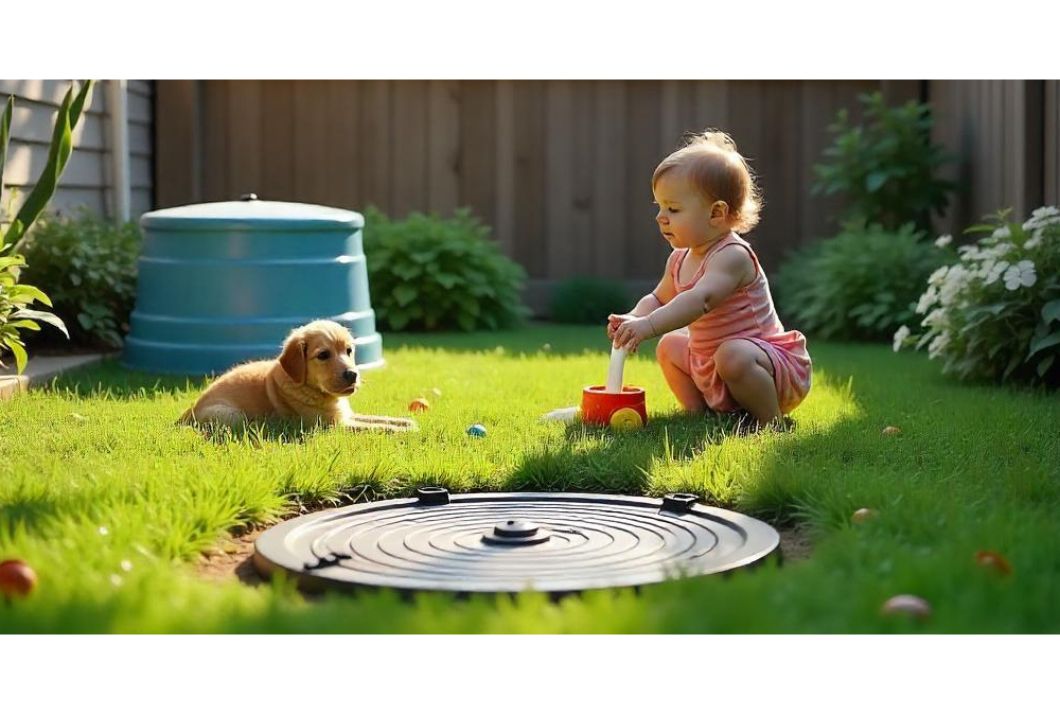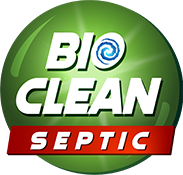Is It Safe to Use Septic Tank Cleaners with Kids or Pets Around?

Most septic tank cleaners contain severe chemicals that may be harmful if accidentally ingested or inhaled by children or household pets.
Even though these products are poured down the drain, traces can linger on toilet seats, splash zones, and other bathroom surfaces. Many standard formulas use corrosive agents like sodium hydroxide or acid-based solvents — both known to cause skin and respiratory irritation.
That means the very product meant to clean your system could be introducing hidden hazards into your home.
If safety is an issue in your household, it's worth investigating non-toxic, bacteria-based products that accomplish the task without the risk.
Signs of Chemical Exposure in Children and Pets
If harsh septic tank cleaners are part of your cleaning routine, you might not see the effects immediately, but your child or pet might show signs hours later.
Exposure doesn’t always look like coughing or passing out. Sometimes it shows up as skin irritation, recurring headaches, or nausea without any clear cause.
In children, it can start small: a rash after stepping barefoot near a treated drain field, or a sore throat that returns every time the bathroom’s just been scrubbed. A study revealed that young children exposed to volatile organic compounds (VOCs) indoors—often found in household cleaners—showed higher rates of wheezing and respiratory distress, even without visible chemical contact.
And for pets? Their bodies process exposure differently.
Cats, especially those that groom obsessively, are at risk of ingesting residues left on surfaces like floors, toilet rims, or lids. Even low-level contact with quaternary ammonium compounds (quats) can trigger vomiting and lethargy in felines.
Dogs are highly sensitive to alkaline ingredients like sodium hypochlorite (bleach) and sodium hydroxide, often used in fast-acting septic solutions. Small breeds are especially prone to symptoms like tremors and seizures due to lower body mass.
Many of these reactions don’t happen during use. They happen hours later. When you’ve forgotten you even cleaned something.
Safer Ways to Use Septic Tank Cleaners Around Family
How to Clean Septic System
- Time It Right: Clean when the house is empty, like during school or errands.
- Use Non-Toxic Cleaners: Choose bio-based cleaners like Bioclean.
- Focus on Key Areas: Target high-use spots like the toilet and sink.
- Apply During Off-Peak Hours: Apply cleaner before bed, allowing overnight treatment.
- Store Cleaners Safely: Keep cleaners out of reach of kids and pets.
- Use Powdered Cleaners: Opt for powdered options to reduce fumes.
- Keep Family Away: Block access to treated areas during cleaning.
- Let the System Settle: Wait a few hours before re-entering treated areas.
The solution is not to stop cleaning your septic system. And it will never be a suggested solution. If you're using latrine tank cleaners the same way you'd use dish soap or floor disinfectant, think about it. These products don't just go down the drain and disappear. Many release residues, vapors, or runoff that linger, sometimes in places your child or pet will find hours later.
That’s why more health-conscious homeowners are now switching to bio septic tank cleaners—powdered, bacteria-based solutions designed to break down waste naturally, without toxic residue. But even with safer alternatives, usage still matters.
Here’s how to handle it responsibly:
1. Time your treatment like you would a pesticide.
Never use any septic cleaner (chemical or natural) while kids or pets are nearby. Apply it when the house is empty, ventilate well, and give the system time to stabilize.
2. Don't 'pour and pray.'
Target only what needs treatment. Focus on high-usage areas like the toilet or kitchen sink. Pouring chemical cleaners down every pipe is like using a sledgehammer when you need a screwdriver—and it disrupts the natural balance inside your septic tank.
3. Choose your bio septic tank cleaner carefully.
The word “bio” doesn’t mean safe by default. Look for specifics: products that list the bacterial strains they use (e.g., Bacillus subtilis, Pseudomonas fluorescens) and avoid synthetic additives. Labels like EPA Safer Choice offer additional peace of mind.
4. Prefer powder over liquid.
Granular or powder-based enzyme treatments work more gradually, but they also limit exposure to airborne irritants—something that matters if toddlers crawl on floors or pets sniff around drains.
5. Treat it like medication.
Store latrine tank cleaners out of reach, in sealed containers, far from where food or pet items are kept. It’s not just about safety—it’s about removing temptation.
And if you still think it might take a whole lot of your day, you’re likely contributing to the growing number of accidental poisonings year after year—with septic tank cleaners among the top causes.
These accidents don’t happen at random. They’re preventable—and they can be prevented.
Final Verdict
Yes, septic tank cleaners can be dangerous around kids and pets. But we can’t put a mark on them, that they’re “bad products.” They become a bad product because of our use. Most of us use them like they vanish after a flush. They don’t.
Their chemical residues stay behind, get into the air, and sometimes end up on the hands, paws, or toys of the ones you’re trying to protect.
So, the solution is simple. It’s switching to a septic cleaning method that doesn’t turn your home into a chemical trap.
Bio-based cleaners, like those from Bioclean, generate no fumes, no harsh residues, just active enzymes doing the job quietly and safely. If you wouldn’t mop your floor with bleach while your toddler is crawling nearby, why take that risk with your latrine tank? Choose safer cleaning.
FAQs
1. Can septic tank cleaners harm children or pets if they’re nearby during use?
Yes. Especially strong chemical-based cleaners can emit fumes or leave residues that children and pets can absorb through skin, paws, or lungs.
2. What should I do if accidental exposure happens?
For kids, rinse skin immediately and contact Poison Control. For pets, take them to the vet. Keep product packaging — it helps professionals identify the chemical fast.
3. Are natural or enzyme-based septic cleaners safer around kids and pets?
Generally, yes — but always read the label. Choose products certified by safety bodies like the EPA or USDA Bio Preferred Program, and avoid those with vague terms like “plant-derived” without actual ingredient lists.




